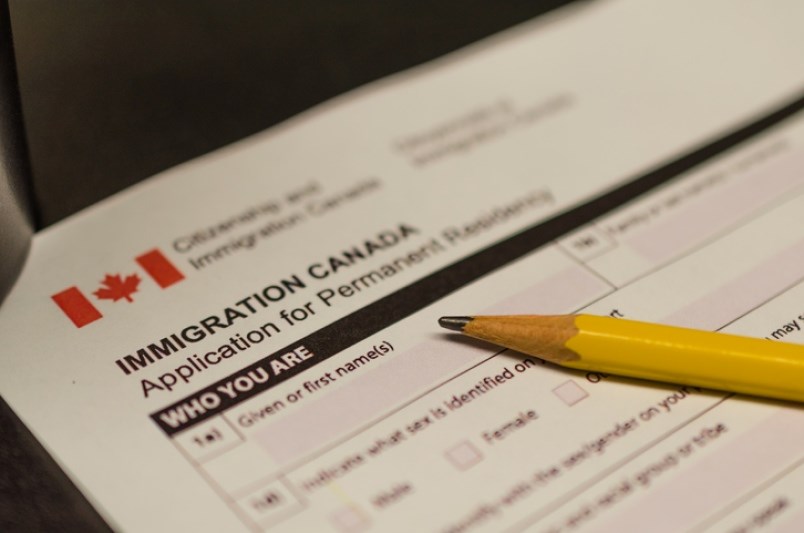In 2020, the ramifications of the COVID-19 pandemic on immigration to Canada were not particularly clear.
With universities moving to virtual classes, there was little incentive for international students to secure loans and pack their bags. Economic uncertainties at home also made hiring workers from abroad more complicated.
Last year, the federal government set an aspiration of welcoming 400,000 immigrants to Canada. In December, it was announced that the goal had been reached. Ottawa touted the benefits of immigration, particularly in the area of health care, where professionals who were not born in Canada amount to 25% of the workforce.
Other countries around the world have struggled to explain how immigration works over the past few years. Canada has not been immune to these problems, even if the issue is not as polarizing as it has been in the United States and parts of Europe.
It is also clear that COVID-19 exacerbated some unjustified feelings of animosity. A survey Research Co. conducted on behalf of found that 9% British Columbians have directly experienced hate incidents since the start of the pandemic, a proportion that rises to 15% among residents of East Asian descent.
Research Co. and Glacier Media recently reviewed the feelings of Canadians on immigration, and some views are stable. More than half of Canadians (54%, unchanged since a similar survey ) think immigration is having a mostly positive effect in Canada, while just over one in four (26%, down four points) consider the effect as mostly negative and about one in five (19%, up three points) are undecided.
While majorities of Canadians of all ages concur on the positive effect of immigration, there are some regional differences. Ontario is ahead of all provinces at 58%, followed by Quebec and Alberta (each at 56%), Atlantic Canada (54%) and British Columbia (51%). The situation in Saskatchewan and Manitoba is strikingly different, with practically the same proportion of residents looking at immigration either positively (40%) or negatively (39%).
Canadians who voted for the Liberal Party and the New Democratic Party (NDP) in the 2021 federal election are also more likely to regard immigration in a favourable light (69% and 60% respectively) than those who cast ballots for Conservative Party candidates (46%).
There is some movement when Canadians are asked about the number of immigrants that are allowed to settle in the country each year. About two in five (39%, down four points) think immigration levels should remain the same, while the same proportions would prefer to increase them (25%, up eight points) or decrease them (25%, down seven points).
A seven-point drop in the proportion of Canadians who call for lower immigration levels is noteworthy, even if we continue to see larger numbers for the status quo. Once again, not every province feels the same way. Quebecers are particularly adamant on allowing more immigrants into Canada (36%), followed by Atlantic Canadians (26%). In Saskatchewan and Manitoba, more than a third (35%) want the number to be reduced.
There was no change in two other statements that we test every time we ask Canadians about this issue. Three in four Canadians (75%, unchanged) believe that the hard work and talent of immigrants makes Canada better. However, while almost half of supporters of the New Democrats (49%) and Liberals (46%) “strongly agree” with this statement, only 28% of Conservatives concur.
Finally, almost two-thirds of Canadians (65%, also unchanged) think immigrants should only be allowed in Canada if they adopt Canadian values. Four groups have particularly strong feelings about this dictum: men (70%), Canadians aged 55 and over (77%), Quebecers (72%) and Conservative voters in 2021 (80%).
On the economic front, Canada is going through a time of mixed signals. Canadians are increasingly but expect the economy to do better in the future. The is 6%, making the argument of immigrants taking away domestic jobs moot.
Still, it is important to recognize that the divide on the immigration file is mostly ideological. Conservative Party voters are significantly more likely than other Canadians to say that immigration has a negative effect, to call for a decrease in the number of immigrants allowed into Canada and to demand that newcomers adopt Canadian values.
As a new leadership race gets underway, Canada’s official opposition party runs the risk of overreacting on immigration, in a similar fashion to the way its provincial cousins in Alberta and Saskatchewan have recently misread public sentiment about the pandemic. Conservative voters in Canada may be more reticent about immigration, but not in numbers that suggest that the ruinous positions of other centre-right parties around the world should be emulated.
Mario Canseco is president of Research Co.
Results are based on an online study conducted on February 6 and February 7, 2022, among 1,000 adults in Canada. The data has been statistically weighted according to Canadian census figures for age, gender and region. The margin of error, which measures sample variability, is plus or minus 3.1 percentage points, 19 times out of 20.



